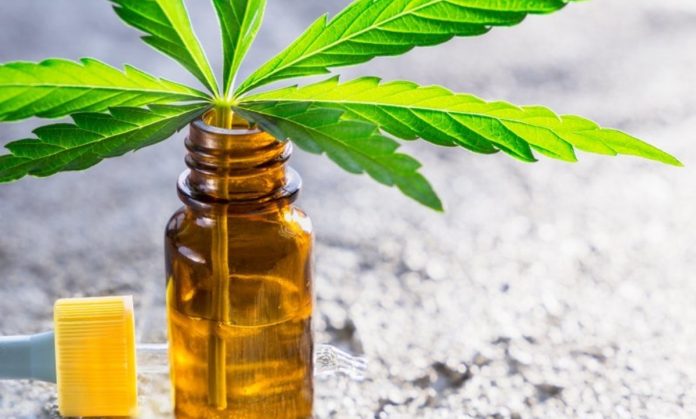In recent years, the health and wellness landscape has been profoundly transformed by the growing acceptance and use of cannabidiol (CBD) and a wide array of cannabis products. This change reflects a broader societal shift towards natural and alternative therapies. CBD, a non-psychoactive compound found in the cannabis plant, has gained significant attention for its potential health benefits without the high traditionally associated with marijuana use.
Read on to explore the positive impact of CBD on everyday health.
- The Versatility of Cannabis Products
The versatility of cannabis products extends well beyond traditional uses, encompassing a broad spectrum of health and wellness needs. These products range from CBD oils, known for their ease of use and dosage precision, to edibles that offer a discreet and convenient way to consume cannabis. Topical creams and balms have gained popularity for localized relief and are beneficial in addressing muscle soreness and skin conditions. Meanwhile, tinctures offer a fast-acting option, often preferred for their rapid absorption and ability to provide swift relief.
This wide range of cannabis products demonstrates the adaptability of cannabis in addressing various health concerns, making it a versatile choice for consumers seeking natural, tailored health solutions.
- CBD’s Role in Pain Management
CBD’s role in pain management is a beacon of hope for those seeking relief from chronic pain. Unlike traditional painkillers, which can pose risks of addiction and significant side effects, CBD offers a natural and safer alternative. Its efficacy lies in interacting with the body’s endocannabinoid system, a complex network that is crucial in regulating pain, inflammation, and overall homeostasis. CBD’s ability to modulate this system helps reduce inflammation, a common underlying factor in many chronic pain conditions.
Furthermore, it influences pain pathways and neurochemicals involved in pain perception, offering a multifaceted approach to pain relief. This natural compound’s potential in managing pain extends to various conditions, including arthritis, neuropathic pain, and fibromyalgia. This offers a new horizon in pain management that is both effective and devoid of the harsh side effects of conventional medications.
- Mental Health and CBD
The impact of CBD on mental health is gaining increasing recognition in the medical community. As the prevalence of mental health disorders escalates, the quest for safer, non-addictive treatments becomes more critical. CBD stands out for its anxiolytic properties, offering a natural means to mitigate symptoms of anxiety and stress. This is particularly relevant in today’s fast-paced world, where such conditions are increasingly common. CBD’s interaction with serotonin receptors, which are pivotal in mood regulation, underpins its potential as a therapeutic agent.
Unlike conventional psychiatric medications, which can have significant side effects and addiction risks, CBD provides a more holistic approach. This aligns with the growing preference for natural treatments in mental health care, highlighting CBD’s role as a promising alternative in managing mood disorders, anxiety, and stress-related conditions.
- CBD and Sleep Disorders
Sleep disorders, which impact a significant portion of the population, are often intertwined with issues like stress and chronic pain. CBD has emerged as a beneficial aid in improving sleep quality due to its calming effects on the nervous system. By addressing root causes such as anxiety and pain, CBD goes beyond mere symptom management, offering a holistic solution to sleep disturbances.
Its ability to induce relaxation and reduce discomfort is pivotal in facilitating a more restful and uninterrupted sleep cycle. This is particularly valuable in an era where sleep disorders are on the rise, often exacerbated by lifestyle factors and stress. CBD’s non-addictive nature and lack of significant side effects position it as a preferable alternative to traditional sleep medications, providing a natural path to better sleep and, consequently, improved overall health.
- CBD in Skincare and Dermatology
Incorporating CBD into skincare and dermatology represents a significant shift towards natural, plant-based treatments. CBD’s potent anti-inflammatory and antioxidant properties make it valuable in addressing various skin conditions, including acne, psoriasis, and eczema. These chronic and distressing conditions can significantly impact quality of life. CBD’s ability to soothe inflammation and regulate the skin’s oil production offers a dual approach to treating acne. At the same time, its anti-inflammatory action is beneficial in conditions like psoriasis and eczema.
Moreover, its antioxidant properties combat free radicals, suggesting its role in preventing age-related skin damage. This positions CBD as a promising ingredient in therapeutic and preventive skincare, aligning with the growing trend towards holistic and natural wellness in dermatology.
Table of Contents
Safety and Regulation of CBD Products
As the popularity of CBD and cannabis products grows, concerns about safety and regulation become paramount. Consumers need to source their products from reputable companies that provide transparent information about sourcing, manufacturing, and testing. The quality of CBD products can vary significantly, so ensuring purity and potency is crucial for both safety and effectiveness.
Conclusion
CBD and cannabis products represent a significant shift in the way people approach health and wellness. From pain management and mental health to sleep and skincare, the impact of these natural compounds is broad and far-reaching. As research continues to evolve, the world will likely see even more innovative uses and applications, solidifying the role of CBD and beyond in promoting everyday health.
















